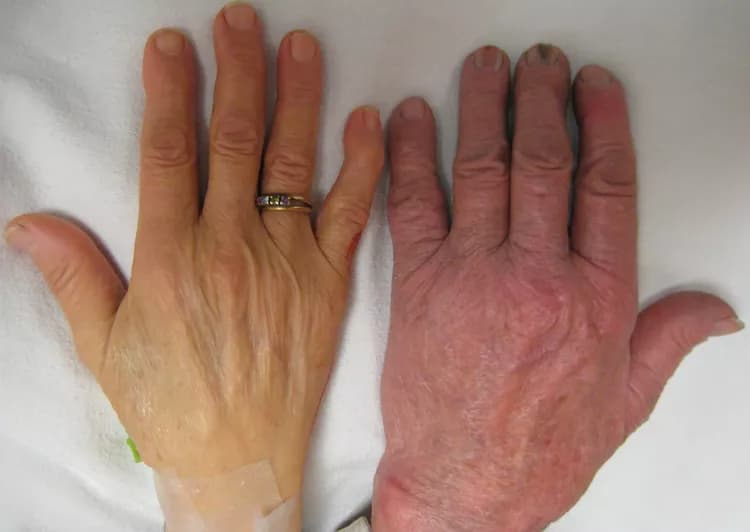
Astronauts Don't Develop Anemia During Spaceflight, NASA Study Suggests
Space flight anemia -- the reduction of circulating red blood cells (RBCs) during time spent in space -- is an established phenomenon, but it may not be a major concern during long-duration space missions, according to a study published in the open access journal BMC Hematology.
Dr Richard Simpson; associate professor at The University of Arizona and the University of Houston, co-author of the study said: "There is an idea of 'space anemia' that is associated with space flight. However, this is based on blood samples from astronauts collected after flight, which may be influenced by various factors, for example the stress of landing and re-adaptation to conditions on Earth. For this study, led by Dr. Brian Crucian at NASA Johnson Space Center, living, whole blood samples were collected during spaceflight and returned to Earth for analysis. This unique sample allowed us to track hematological parameters -- such as concentrations of red blood cells (RBCs), hemoglobin or hematocrit -- in astronauts on board the International Space Station during flight."
The researchers found that during space flight, concentrations of RBCs, platelets and the oxygen-carrying protein hemoglobin were higher compared to pre-flight levels. Hematocrit (the ratio of RBCs to the total volume of blood) also increased during space flight. While previous studies had shown this to be the case during the first few days of flight, this is the first study to show that RBC concentrations and hematocrit remain at higher levels even after astronauts' bodies have adapted to microgravity.
To find out how the blood of astronauts may change if they spend a long time in space, the researchers collected blood samples from 31 astronauts (six women and 25 men) who spent up to six months on the International Space Station (ISS). Samples were collected at 180 and 45 days before the astronauts flew to the ISS. Blood was also collected while in space during the first two weeks, and approximately three and six months into the mission. Samples were returned to Earth for analysis either in Houston or at Star City, Russia within 48 hours of collection. Post-flight samples were collected three to eight hours after landing and 30 days after the mission had ended.
While some of the changes observed in the in-flight blood samples were to be expected due to the 48-hour processing delay between sample collection and analysis (delays affect the concentration of various components of collected blood samples), the changes in hematocrit during spaceflight were striking, according to the researchers. Hematocrit had increased by 12.2%, 12.2% and 10.0% at early, mid, and late time points during space flight compared to pre-flight levels. However, only a 4.7% increase in hematocrit was observed in reference samples taken on earth from non-astronauts after the 48-hour processing delay. This suggests that the increases observed in the ISS samples are partly due to a true in-flight increase in RBC count. After the astronauts examined in this study returned to Earth, all blood parameters returned to pre-flight levels within 30 days.
Dr Simpson said: "Although the data does not indicate that significant anemia is present, it must be interpreted in the context of crew plasma volume during flight. Overall plasma volume has been shown to be reduced during spaceflight, but this has not been assessed during long-duration missions. In order to fully interpret the changes to RBC, hematocrit and other parameters observed in this study, further research into plasma volume during long space missions is needed. This will be addressed in a separate ongoing NASA investigation."
Materials provided by BioMed Central. Note: Content may be edited for style and length.
Disclaimer: DoveMed is not responsible for the accuracy of the adapted version of news releases posted to DoveMed by contributing universities and institutions.
References:
Hawley Kunz, Heather Quiriarte, Richard J. Simpson, Robert Ploutz-Snyder, Kathleen McMonigal, Clarence Sams, Brian Crucian. (2017). Alterations in hematologic indices during long-duration spaceflight. BMC Hematology. DOI: 10.1186/s12878-017-0083-y
Related Articles
Test Your Knowledge
Asked by users
Related Centers
Related Specialties
Related Physicians
Related Procedures
Related Resources
Join DoveHubs
and connect with fellow professionals

0 Comments
Please log in to post a comment.